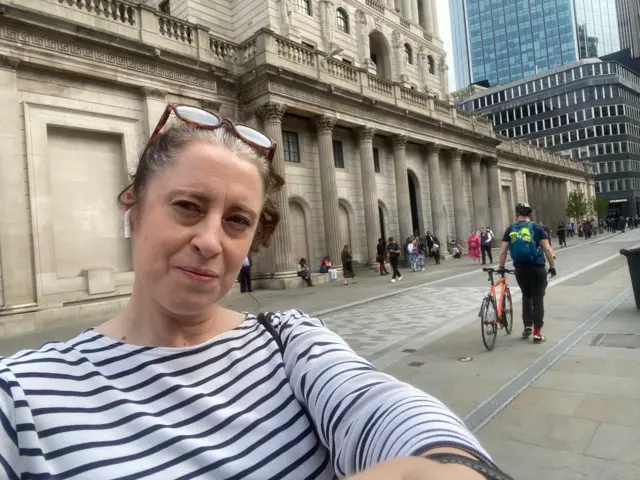'Gradual downward path': What the Bank has been saying on ratespublished at 11:15 BST 7 August
 Michael Race
Michael Race
Business and economics reporter
I've covered most of the interest rate decisions this year and the line which has been repeatedly said by the Bank's governor Andrew Bailey is that rates are on a "gradual" downward path.
The Bank often stresses the need to be cautious when deciding to lower rates, given consumer prices in the UK are rising at an annual rate above its target of 2%. Inflation in the year to June was 3.6%, with food price increases pushing up the cost of living.
The UK aside, the Bank also looks at what is going on across the world and the economic impact events might have - the Bank has highlighted the inflation risks of US tariffs, for example.
So while a cut is widely expected today, expect to see similar words to gradual and caution from the Bank.





